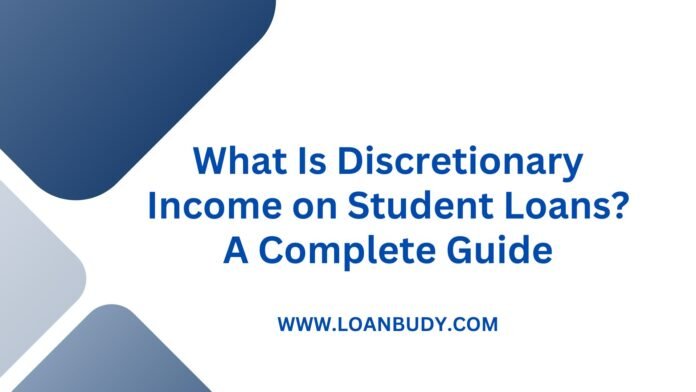Navigating the complexities of Discretionary Income student loans can be daunting, especially when it comes to understanding how repayments are calculated. One critical concept to grasp is discretionary income, which plays a significant role in income-driven repayment plans. This article will break down what discretionary income is, how it affects your student loans, and why it matters.
What Is Discretionary Income?
Discretionary income is defined as the amount of income that remains after deducting essential living expenses. This includes costs such as housing, food, transportation, and other necessary expenditures. In the context of student loans, discretionary income is particularly important for borrowers enrolled in income-driven repayment (IDR) plans.
How Is Discretionary Income Calculated?
The calculation of discretionary income can vary depending on the specific IDR plan, but it typically follows these steps:
- Determine Your Adjusted Gross Income (AGI): Your AGI is your total income minus specific deductions, such as retirement contributions or student loan interest.
- Subtract the Poverty Line Amount: The U.S. Department of Health and Human Services establishes federal poverty guidelines that vary by household size and location. The discretionary income is typically calculated by taking your AGI and subtracting 150% or 100% of the federal poverty line, depending on the repayment plan.
- For example, if your AGI is $50,000 and the federal poverty line for a single-person household is $13,590, then:
- 150% of the poverty line is $20,385.
- Discretionary income would be $50,000 – $20,385 = $29,615.
- For example, if your AGI is $50,000 and the federal poverty line for a single-person household is $13,590, then:
Importance of Discretionary Income in Student Loan Repayment
- Income-Driven Repayment Plans: Discretionary income is crucial for determining your monthly payment amount under income-driven repayment plans, such as:
- Revised Pay As You Earn (REPAYE)
- Pay As You Earn (PAYE)
- Income-Based Repayment (IBR)
- Income-Contingent Repayment (ICR)
- Potential for Loan Forgiveness: If you remain on an income-driven repayment plan, any remaining balance on your loans may be eligible for forgiveness after a certain number of qualifying payments (typically 20 or 25 years). This means that a lower discretionary income can help you qualify for lower monthly payments and potentially more loan forgiveness in the long run.
Managing Your Discretionary Income
To effectively manage your student loans and discretionary income, consider the following tips:
- Keep Accurate Records: Maintain records of your income and living expenses to ensure accurate reporting when applying for an IDR plan.
- Reassess Your Situation: Your income may fluctuate due to job changes or life events. Be proactive about updating your repayment plan if your financial situation changes significantly.
- Explore Additional Resources: Look into other assistance programs, such as scholarships, grants, or even state-level loan forgiveness programs that can further alleviate your financial burden.
Conclusion
Understanding discretionary income is essential for effectively managing your student loans, particularly if you’re enrolled in an income-driven repayment plan. By grasping how discretionary income is calculated and its implications for your monthly payments and loan forgiveness, you can make informed decisions that align with your financial goals. Always consult with your loan servicer for personalized guidance and to ensure you’re taking advantage of all available options.
Read More:
- Cryptocurrency Regulations Around the World: A Comprehensive Overview
- 5 Insurance Policies Everyone Should Have for Financial Security
- Tick Size: Definition in Trading, Requirements, and Examples












